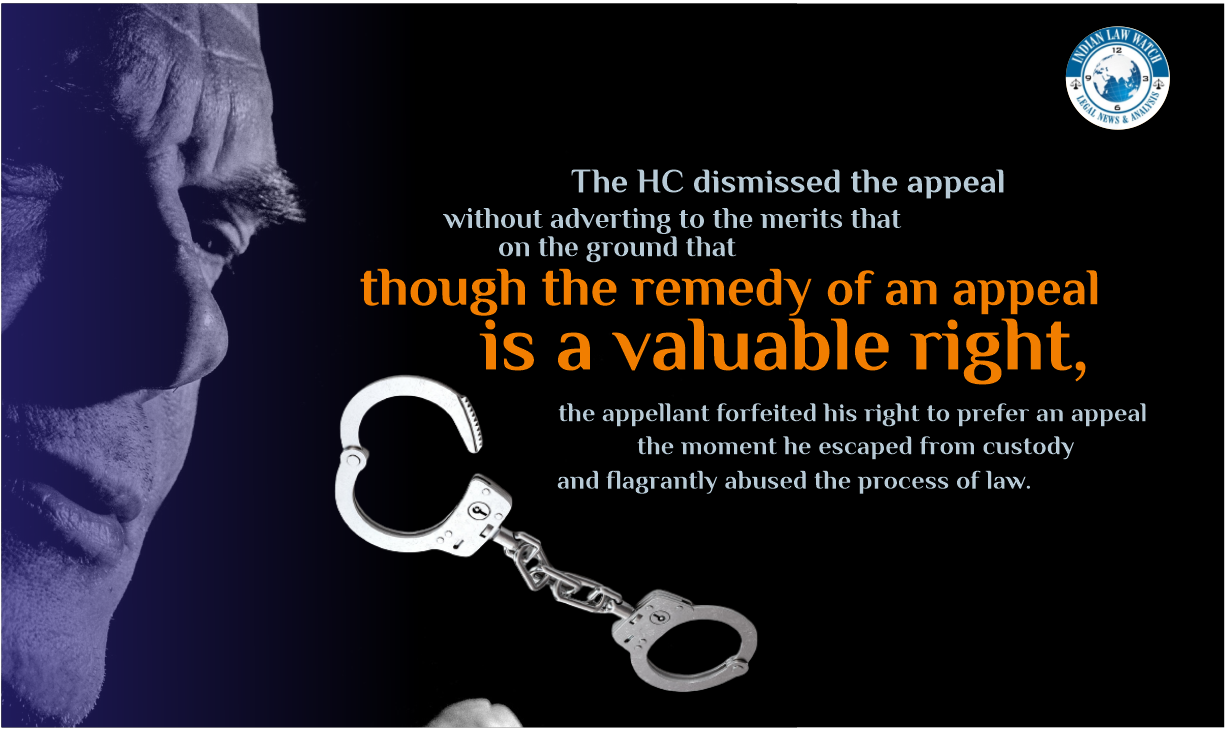

6. In the impugned judgment, the Division Bench of the Patna High Court has itself recorded that it is deviating from the settled position of law. Such an approach cannot be countenanced. The well settled law can be found in the decision of this Court of a Bench consisting of three Hon’ble Judges in the case of Bani Singh & Ors. v. State of U.P.
The Supreme Court observed in Dhananjay Rai @ Guddu Rai v. The State of Bihar, Criminal Appeal No. 803 of 2017 that an already admitted appeal against conviction cannot be dismissed for non-prosecution. In the present case, the appellant was convicted by the trial court for the offences under Sections 302 and 120B of the Indian Penal Code and Section 27(1) of the Arms Act, 1959. The appellant preferred an appeal for suspension of sentence, with the division bench of the Patna High Court which was admitted to be heard on merits on 29th October 2009. When the application came up before the HC, it was brought to the notice of the HC that the appellant was absconding. Consequently, a non-bailable warrant was issued against the appellant. Further, the HC dismissed the appeal without adverting to the merits on the ground that though the remedy of an appeal is a valuable right, the appellant forfeited his right to prefer an appeal the moment he escaped from custody and flagrantly abused the process of law. The HC while accepting that it is deviating from a settled principle of law, i.e., once the appellate court has refused to dismiss the appeal summarily, the same must be heard on merits, noted that the circumstances of the case are exceptional and require such deviation.

The Supreme Court (“Court”) in the appeal noted that the HC relied upon its earlier judgment in Daya Shankar Singh v. State of Bihar (2004 SCC Online Pat 1189), wherein with respect to Rule 8 of Chapter XII of the Patna HC Rules it was held that no appeal against conviction shall be heard for admission unless the accused has surrendered to the order of the Court convicting him to a sentence of imprisonment, except in a case where the appellant has been released on bail by the trial court after convicting him.
The Court rejected this reasoning by stating that the said rule only applies to the pre-admission stage of an appeal and in this case, the appeal was already admitted on 29th October 2009.
Further, with respect to the anguish expressed by the HC against the shameless act of the accused of defeating the administration of justice by absconding, the Court noted that the same cannot be a reason to dismiss an appeal which was already admitted for final hearing.
The court while remanding the appeal to the High Court for consideration on merits, also added that since the conviction dates back to 2009, the appeal has to be disposed off within 6 months, failing which it will be open to the appellant to apply for suspension of the sentence before the High Court.





